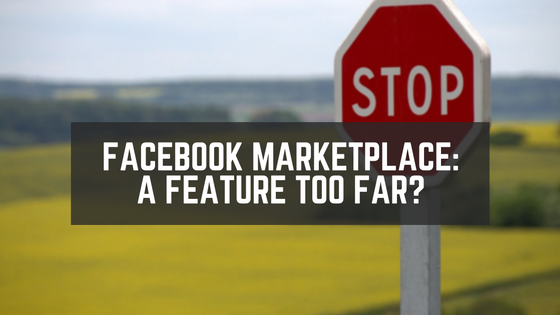
Facebook’s newest update introduced the world of classified ads to the social network. Reminiscent of Gumtree and Craigslist, Facebook Marketplace gives users immediate access to a local buy and sell board. But with users already abusing it to sell illegal and illicit items, could it be a feature too far for the network?
When Facebook Marketplace was announced at the beginning of this week, it didn’t take long for controversy to come a-knocking. Within a matter of hours, a number of illicit ads had been posted purporting to sell items such as baby Hedgehogs, drugs and guns. Rather unsurprisingly, these items come under a list of prohibited items within Facebook’s Commerce Policy.
While the social networking giant were quick to tell the BBC that the violations were a result of a “technical issue that prevented [the] system from identifying some posts that violated [their] commerce policies and community standards” and has since been (in the most part) resolved, it’s nevertheless launched the listings feature with a sense of unease.
The sheer volume of prohibited and illicit ads that were highlighted at the feature’s launch far outweighed the amount of spam listings that often turn up on Craigslist and Gumtree.
A feature too far?
You’d have to be living with your eyes closed to fail to realise that Facebook is currently trying to become the internet on the internet. Each of their most recent updates have been intended to limit the amount of time that users are required to spend away from the network – from creating an in-app browser to view external content, to enabling businesses to showcase and sell their products and services direct from their pages, all the way down to trying to control how users communicate via messaging and live video.
It’s fairly evident that, to Facebook, Marketplace is another step towards their ultimate vision. But some users are sceptical, taking issue with the fact that this product relies wholeheartedly on content supplied by users. With Marketplace they have effectively created a feature that does not feel at all defined by the network and actually feels slightly like a departure to an external product altogether.
For users it feels like Facebook is in a transitional phase as social network. A transition from being defined by its features, to being defined by each specific user’s preference of a bucketful of different features, all of which nobody uses and of which you’d have to be an expert to know quite how many actually existed.
One thing is for sure, there is a lot going on at Facebook at the moment – sooner or later, users are going to get annoyed.



